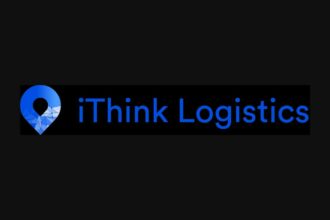SaaS startup Tekion, which is focused on the automotive sector, attained the unicorn status in 2020 at a valuation of $1 billion. This number increased to $3.5 billion in 2021 after a $250 million funding round.
“We have been growing in the range of 250-300 percent year-on-year,” says founder Jay Vijayan in an interview with YourStory.
According to him, focusing on a single vertical and devoting all its energy towards developing innovative solutions continues to pay rich dividends for this Software as a Service (SaaS) unicorn, which was founded in 2016.
The major change in the growth trajectory for Tekion came with the advent of the Covid-19 pandemic in 2020, which demanded contactless transactions. Tekion’s cloud native technology platform enabled these functions digitally.
Tekion spent its first three years on R&D to create the technology framework, which could become the single platform for the automotive industry to perform all their functions, especially for the dealer community. It introduced its first flagship product automotive retail cloud in November 2019.
“During the pandemic, our platform became a big plus as a lot of people in the automotive industry started thinking about going digital,” says Jay.
The startup also registered a 5x growth in its employee base, including both in the US and India.
Wide network
Today, Tekion has some of the leading automotive dealers and original equipment manufacturers (OEMs) in the US as customers. In fact, General Motor sells its entire electric vehicle (EV) range on the tech platform of this SaaS unicorn.
Tekion claims it has seen over $5 billion in transactions, with over 3.6 lakh vehicles sold and more than $1 billion of automotive parts sold from the time it launched its platform in November 2019 till now.
According to the company, a high performing automotive dealer sees multiple benefits by using Tekion’s technology platform. This includes up to $9,000 in monthly machine learning (ML) generated revenue in accessory up-sells, up to $36,000 monthly additional revenue in ML generated service up-sells. Besides, there are $64,000 years savings in paper and toner spend.
The technology platform of Tekion now encompasses three key constituencies of the automotive industry – OEMs, dealers, and third party software providers, with specific functionality for each of the segments.
New use cases
Globally, the automotive industry is undergoing numerous changes, and it is primarily happening on three fronts — EVs, autonomous driving, and connected vehicles.
Jay strongly believes that Tekion’s tech platform is well developed to provide services to these emerging concepts, although these are still some time away before they become mass consumption products.
As an example, Tekion is enabling the sale of EVs through the platform and plans to continue its engagement with the automotive sector. It has no immediate plans to take its SaaS platform to other sectors.
“The market demand continues to remain strong and Tekion has just scratched the surface where we will continue to constantly innovate,” says Jay.
Deepak Ravichandran, General Partner at Alkeon Capital said, “Tekion is experiencing strong tailwinds in a large, multi-billion-dollar market, including cloud adoption for online retailing, connected vehicles, increased consumer expectations for seamless, digital car purchasing experiences and digital vehicle connectivity.”
He further said, “By building a single, unified cloud platform for manufacturers and dealers, Tekion is also unlocking multiple new markets here to fore unavailable to legacy incumbents limited by archaic technology architecture.”
According to the founder, Tekion still remains in the investment mode as profitability is not the immediate goal, with enough cash reserves on its books.
HR challenge
The growth experienced by Tekion has also brought different kinds of challenges, i.e., of hiring and retaining the best talent. Hence, the startup has taken the “opportunity route” to address this issue.
Jay believes there is quality talent available in Tier III engineering colleges and it is just a matter of providing an opportunity to these students.
He says, “Engineers from Tier III colleges are equally smart, but they do not get an opportunity.”
Towards this end, Tekion has intensified its efforts to scout and nurture talent from Tier III engineering colleges. This would require much more filtering of the candidates, but there is no lowering of quality standards as the interview questions are the same as what they ask for those from an IIT or NIT.
“We have been hiring from Tier I to Tier III colleges, but now the focus is to spread across other regions,” says Jay.
Along with this, Tekion has also intensified its efforts on the intern engagement programmes where the intake is now higher and the candidates undergo a six month rigorous training to make them industry ready.
These initiatives have been there for the last two years, but now the pace has increased. Earlier, Tekion used to take about 10-15 interns a year, but now it has gone up to 250. According to Jay, there have been instances where some interns’ performance has been equal if not better than someone with eight years of experience.
“If you invest in them, they really step up as it is a matter of giving them an opportunity,” he says.
Good feedback
These efforts have started paying rich dividends to Tekion as the retention rate of these employees is generally higher and they remain with a company for a longer period of time.
The US-headquartered company has a 1,000 member team in Bengaluru, and it recently opened its second centre in Chennai. The Chennai centre has around 228 employees at present and it plans to double this number soon.
“The India team plays a very vital role in the company’s growth, contributing in every aspect–be it design or engineering,” says Jay.
At present, the biggest market for Tekion is the US, and it has plans to expand to Canada and Europe this year.
Tekion also recently came out with its second employee stock option (ESOP) liquidation or buyback programme where over 400 employees participated. The total value of the ESOPs liquidated was around Rs 275 crore.















